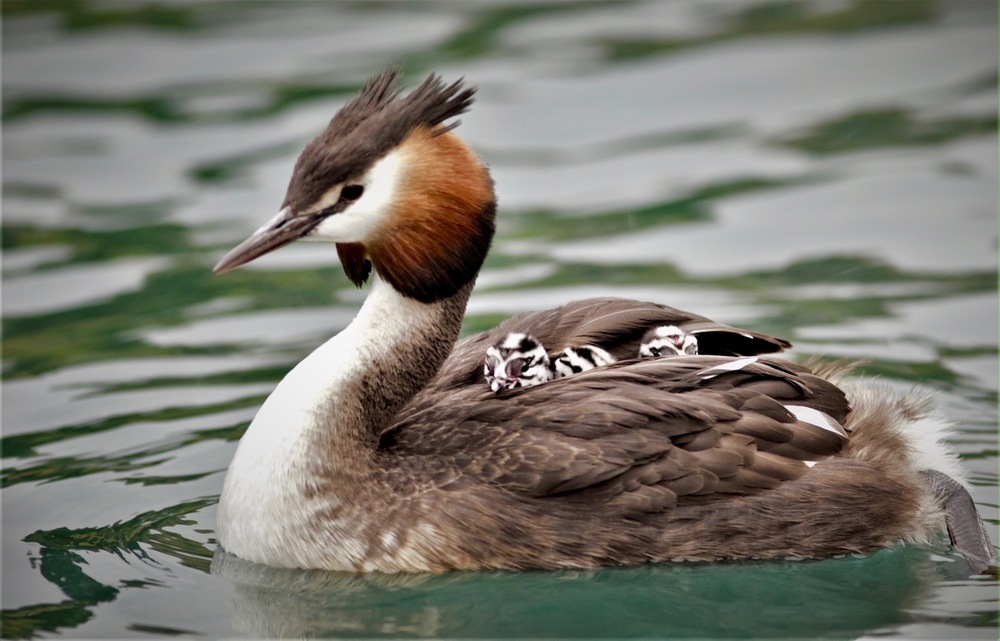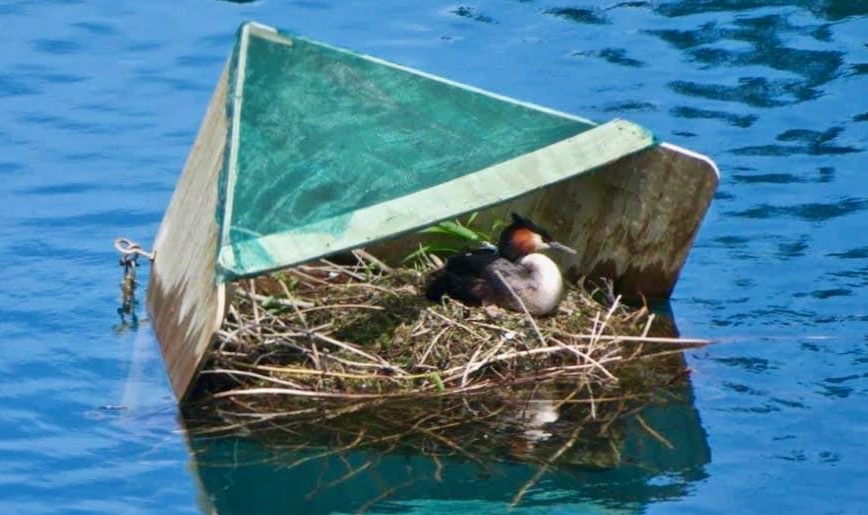Wānaka’s grebes: 98 not out sets new record
Diana Cocks
28 January 2022, 5:04 PM
 So far 98 grebe chicks have fledged this season in Lake Wānaka. PHOTO: John Darby
So far 98 grebe chicks have fledged this season in Lake Wānaka. PHOTO: John DarbyThis year’s breeding season for grebes has set new records around Wānaka, outstripping previous breeding seasons by a significant margin.
The southern crested grebes, which have flourished on Lake Wānaka, and are spreading to Lake Hāwea, have experienced a record-setting season with 98 chicks successfully fledged and more still to come.
Local teacher Markus Hermanns is one of a team of three who have been keeping a close watch throughout the breeding season as the grebes nest mainly in sheltered waters beside the Wānaka marina.
The grebe team reports there have been 44 breeding attempts with a peak of 19 nests on the go simultaneously, resulting in 156 eggs and 98 chicks raised so far.

Grebes carry their family on their backs for safety. PHOTO: John Darby
There are still 16 nests under observation with another 55 eggs yet to hatch.
Not all are likely to result in healthy chicks, especially the nest with 10 eggs, which is euphemistically called ‘dumping’, but the bumper season easily outstrips all previous records, team member John Darby said.
The best season previously recorded was in 2015-16 when 89 chicks fledged from 47 nests (157 eggs).
A feature of this year’s breeding season has been the very large number of birds all attempting to breed at the same time, he said.

A grebe pair returned to Lake Hāwea to nest this season and successfully raised two chicks. PHOTO: John Langley
The team, which also includes keen ornithologist Dave Thomas (who’s new to Wānaka), estimated close to twelve pairs started to breed within a single week and while the earliest pair laid their first egg at the end of July (normal season runs from September-February) most eggs were laid in December and January.
Recent low lake water levels, however, meant the team has had to relocate some nesting platforms to deeper water.
The proximity of the new public boardwalk beside the marina raised some questions but, to date, it has not had a negative impact on the grebes, John said. The only drawback to the boardwalk’s proximity is the time the grebe team now spends responding to enquiries from a multitude of fascinated boardwalk users and grebe converts.
“For us it has meant almost doubling the time needed to do nest checks as we are quizzed by young and old alike, but I think it fair to say that we are all totally chuffed as to how things have worked out,” he said.
Also unbothered by the public attention has been Lake Hāwea’s breeding pair of grebes, which have successfully fledged two chicks this season from a nest of four eggs.
“I saw the four of them just last week in the buoyed area by the boat ramp amongst a throng of people, very vocal and enjoying being social it would seem,” Lake Hāwea Guardian Amie Capell said.
“We are hoping the pair might get another go at having another clutch before the end of the season, however they don’t seem to be heading that way yet.”




